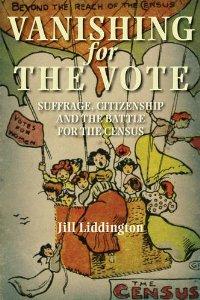What if, after the fall of the Berlin Wall, the East Germans had refused unification with West Germany, instead designing, and beginning to put into practice, a radical, grassroots, participatory democracy – decentralising most decision-making to neighbourhood committees, in which everyone participated? What might that society have looked like? What kind of threats to its survival might such an experiment have faced? And if you lived there what would you do if you suspected that you…
Cochrane, Clare
Cochrane, Clare
Clare Cochrane
Once upon a time (not very long ago), most white feminists didn’t think about how stereotypes of white womanhood helped to maintain racist ideologies. But though the word ‘intersectional’ may not have been coined until 1989 (by law professor Kimberlé Crenshaw), black feminists have long been writing about – and at – the intersections of race, class and gender.
Vron Ware’s groundbreaking book discusses these ideas in a critical look at the historical interactions between feminists…
Does Fairtrade work? In May, a four-year study by academics at London University reported that, for wage workers in Fairtrade and non-Fairtrade producer organisations in Ethiopia and Uganda, Fairtrade status made no difference to poverty levels. The researchers also found evidence that the benefits of the Fairtrade premium, distributed to producer communities, were not fairly shared.
The Fairtrade Foundation responded that the results were not representative of the success of…
Until recently the 1911 Census Boycott was seen as another colourful Suffragette tactic in the ongoing campaign for women's suffrage. But Vanishing for the Vote reveals it to have been an episode of high drama – personal and political, private and public. In proposing that women boycott the census, Suffragettes intensified the 'battle for democracy', asking, Which side are you on: the paternalistic state, or the grassroots campaign for citizenship?
This was a near-perfect…
This is a roller-coaster read from page one, following the terrifying, exhausting, inspiring and ultimately hopeful story of the Common Ground Collective in New Orleans.
Now nearly 10 years old, the collective began when activists from Texas went to the poor districts of New Orleans to find friends of theirs, former Black Panthers, after Hurricane Katrina hit. Among the floodwaters and devastated neighbourhoods, they found oppressed minority…
The other night I went to see The Missing Picture, a film by Rithy Panh about growing up under the Khmer Rouge regime of Democratic Kampuchea (Cambodia) in the 1970s. The film used handmade clay models of people and miniature sets, as well as historical film footage, video montage and a poetic narrative in voiceover, to portray the horror of those bleak years of forced labour and starvation.
The cuteness of the little models and sets, like a kind of DIY Legoland, was grotesque, and…
As I write, two of my friends are in Afghanistan visiting the Afghan Peace Volunteers (APV) – a community of young peace activists in Kabul whose writings and short films (‘love letters from Kabul’) are deeply poetic.
I was reminded of the APV when reading this book. In the late 1960s, the US carried out a massive secret bombing campaign over the Xieng Khoang region of Laos. In just five years, thousands of people were killed and an entire ancient civilisation wiped…
Last September, when the biannual DSEi arms fair came to East London, I took part in a blockade of the ExCeL centre the day before the exhibition opened, hoping to stop the unloading of weaponry for display and sale.
Along with others in the blockade, I was arrested, and charged with obstruction of the highway. When my case came to court, I had to decide whether to plead guilty or not.
It might seem obvious that I would plead guilty. After all, I was lying…
Although it’s only a small booklet accompanying a very short DVD, produced on a low budget, and it would be easy to overlook it, this new resource from the Movement for the Abolition of War (MAW) is more important than it at first looks. After all, it deals with possibly the biggest global concern for nonviolent revolutionaries today: how war and climate change are inextricably linked and why we need to work on them as one issue.
…
A friend of mine posted on Facebook the other day that she was feeling a bit low. I know that a friend of hers is seriously ill, and I thought it might be because of that. But when I rang her a couple of days later, she said she had been down in Gloucester looking out for badgers at night, and that she always feels a bit blue for a couple of days when she gets home from being out on anti-badger cull duty. ‘I think it’s because I’ve been out in the dark and the cold, squinting through a night…
Like the author of this book, I’ve had the experience of working for a large NGO (non-governmental organisation) and, in the process, becoming de-skilled, de-motivated, uncreative and disempowered.
After a couple of years of struggling with hierarchy and unimaginative bureaucracy, I left to do more activism, study for an art degree, and work part-time for a small start-up charity where my skills have been appreciated and nurtured. So naturally I was keen to crack open my copy of…
But there’s no time to celebrate, because the process of planning the replacement for Trident is already under way. If we want a nuclear-free future we have to act now.
The two options under consideration are wholesale replacement of the Trident system of specialised nuclear-powered submarines and missiles; or a ‘tactical’ system of smaller missiles which can carry thermonuclear warheads but be launched from regular submarines. The costs for this option have not been spelled out…











